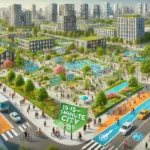The concept of the “15-minute city” has been gaining momentum as cities seek to create more sustainable, accessible, and resilient urban environments. This approach envisions an urban design where essential services—such as work, education, healthcare, and recreation—are located within a 15-minute walk or bike ride from residents’ homes. For urban planners, engineers, and policy-makers, the 15-minute city model offers a transformative solution to some of today’s most pressing urban challenges, ranging from reducing traffic congestion and emissions to enhancing public health and quality of life. However, bringing this vision to life is not without its challenges, and it requires a nuanced blend of spatial planning, engineering innovation, and advanced analytics.
At Predictim Globe, we work alongside partners and local authorities to address these challenges using operations research (OR) and prescriptive analytics, providing data-driven insights and actionable recommendations to make the 15-minute city a reality.
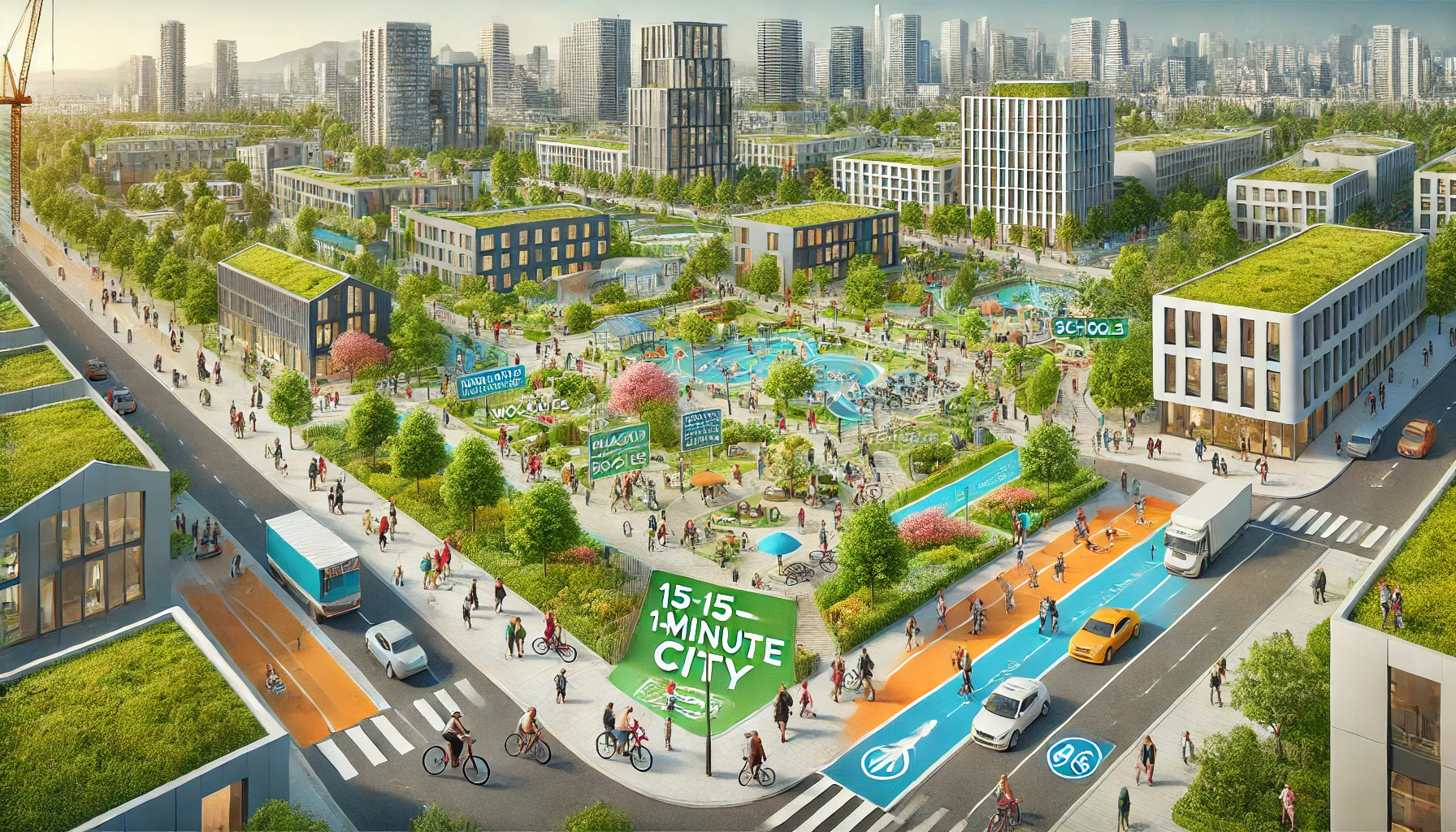
Key Challenges in Designing the 15-Minute City
In developing the 15-minute city, cities face a range of challenges across urban planning, engineering, environmental, and social dimensions. Each challenge represents a distinct problem area that, when thoughtfully addressed, can lead to substantial improvements in the quality of urban life.
Machine learning (ML) plays a critical role in tackling these complex, data-rich challenges. ML models analyze vast datasets from various sources, generate predictive insights, and support the optimization of urban layouts and services. These advanced capabilities enable the creation of sustainable, accessible, and resilient urban spaces tailored to the needs of residents.
The following sections delve into key problem areas affecting the development of the 15-minute city and highlight how they shape the path toward more livable urban environments.
Urban Engineering and Infrastructure Optimization
- Application: Machine learning algorithms are helping urban planners analyze and predict traffic patterns, pedestrian flows, and transportation needs, allowing them to design infrastructure that prioritizes pedestrian and cyclist access. With prescriptive analytics, these insights translate into recommendations for adjusting street layouts, adding bike lanes, and reallocating space to balance accessibility for different modes of transport.
- Impact: This approach ensures that infrastructure developments are not only based on past data but also adaptive to changing urban conditions, making cities safer, more efficient, and better suited for active transport.
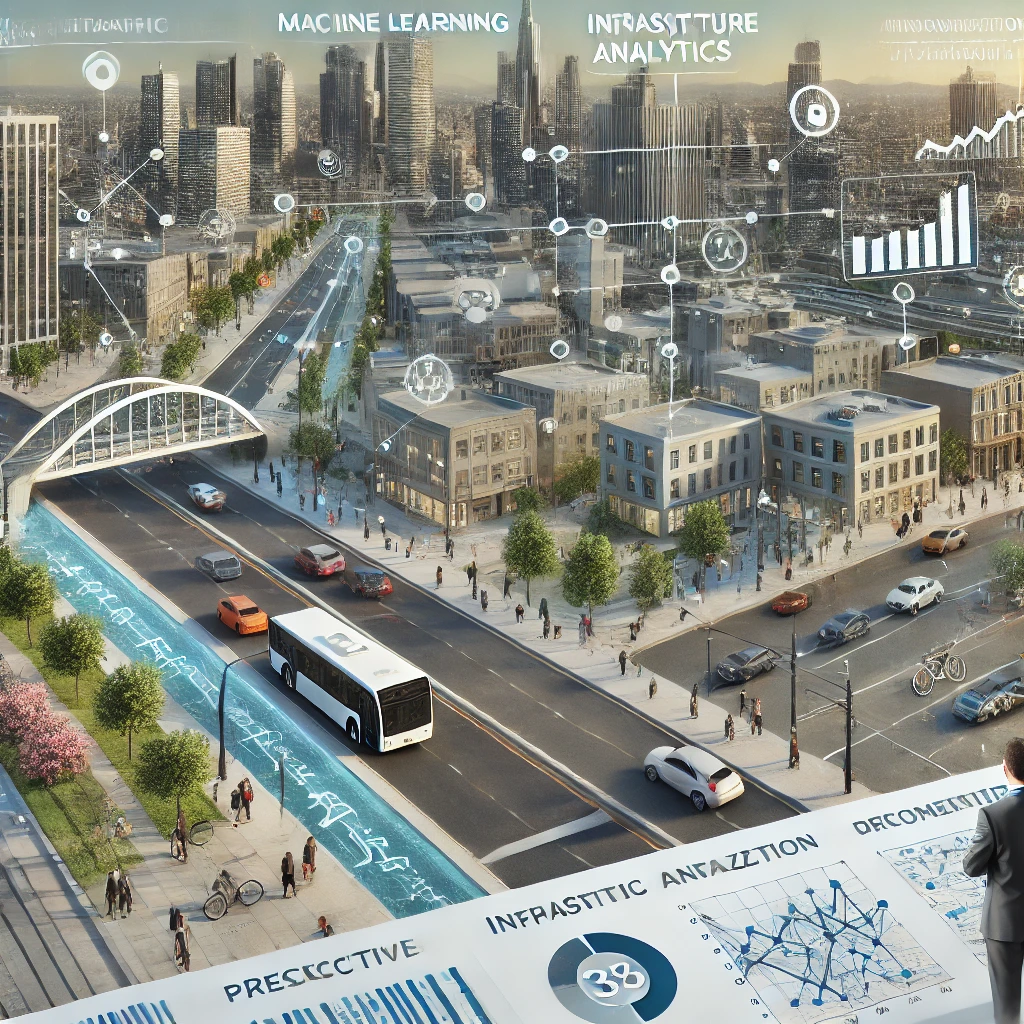
Spatial Design and Mixed-Use Land Allocation
- Application: Machine learning models trained on spatial and demographic data are identifying patterns in how residents use urban spaces, which helps planners determine the best locations for schools, parks, health centers, and shops. Prescriptive analytics integrates these insights, recommending specific site allocations to ensure essential services are within reach of all neighborhoods.
- Impact: With a clear understanding of spatial demands, cities can build mixed-use neighborhoods that encourage walking and cycling, reduce travel distances, and enhance urban livability.
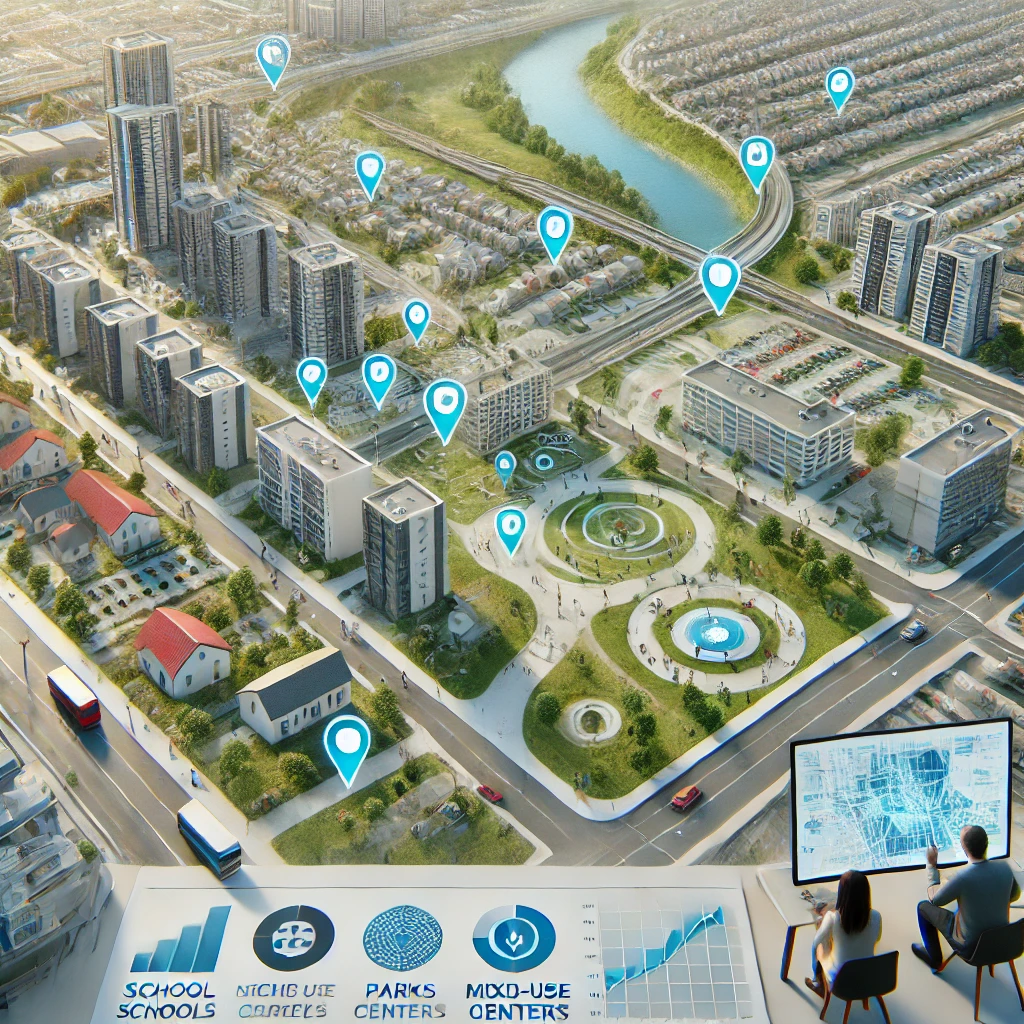
Environmental Sustainability and Green Space Planning
- Application: Using machine learning to model pollution levels, temperature variations, and biodiversity patterns, cities gain insights into where green spaces are most needed and effective. Prescriptive analytics is then applied to make strategic recommendations for the placement and type of green infrastructure with the highest environmental impact, such as urban forests, green corridors, and vertical gardens.
- Impact: These data-driven strategies allow for green infrastructure that reduces urban heat, improves air quality, and supports biodiversity, making cities healthier and more resilient.

Accessibility and Social Equity
- Application: By using machine learning to analyze demographic, economic, and accessibility data, cities can identify underserved areas and design interventions that promote equitable access. Prescriptive analytics combines these insights with multi-objective optimization, providing clear action plans for resource allocation that balance accessibility with budget constraints.
- Impact: The result is urban planning that actively addresses social disparities, ensuring all communities, regardless of socioeconomic background, have equal access to critical services and amenities.
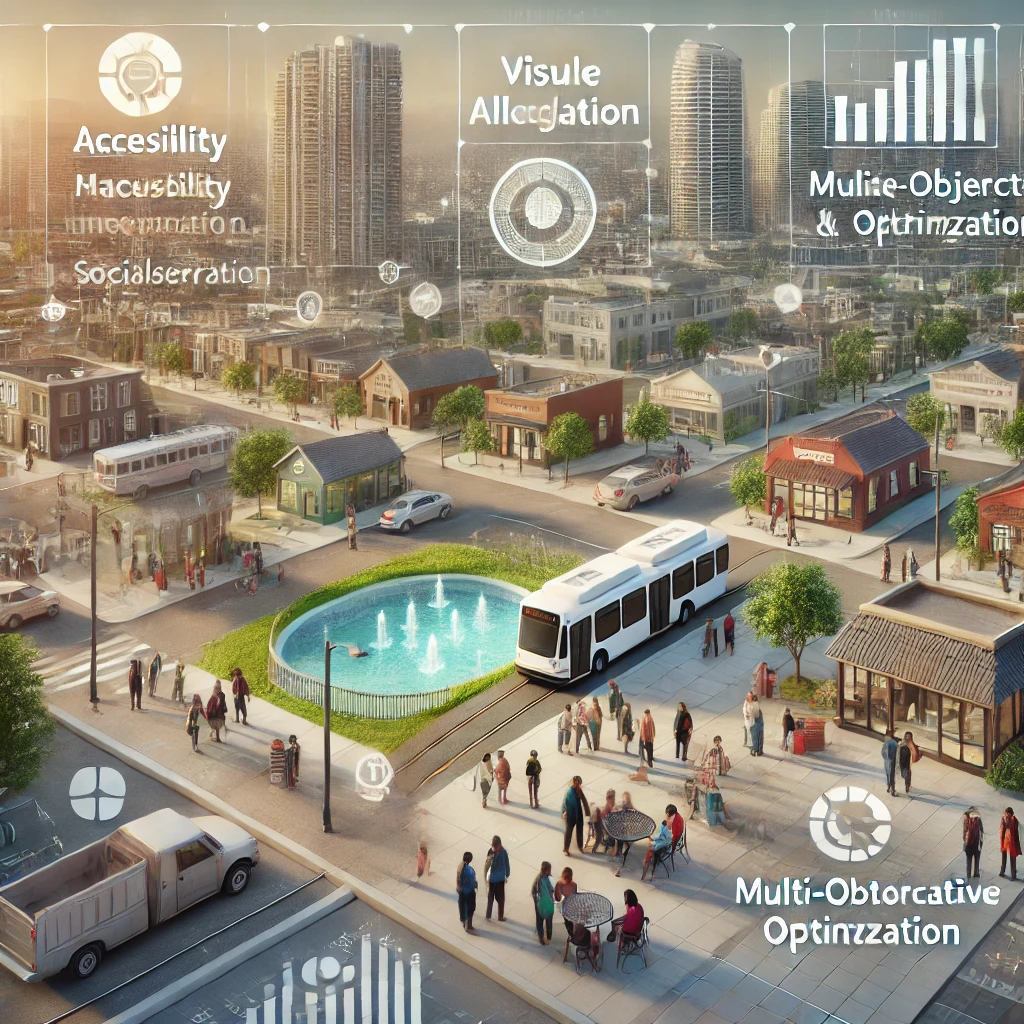
Sustainable Mobility and Transportation
- Application: Machine learning models analyze historical and real-time mobility data to forecast demand for public transport, bike-sharing programs, and walking paths. Prescriptive analytics takes these predictions further, recommending optimal routes, schedules, and resource allocations that maximize efficiency and reduce reliance on cars.
- Impact: These optimized transportation networks support sustainable mobility, reducing congestion, emissions, and travel times while encouraging active, eco-friendly modes of transport.
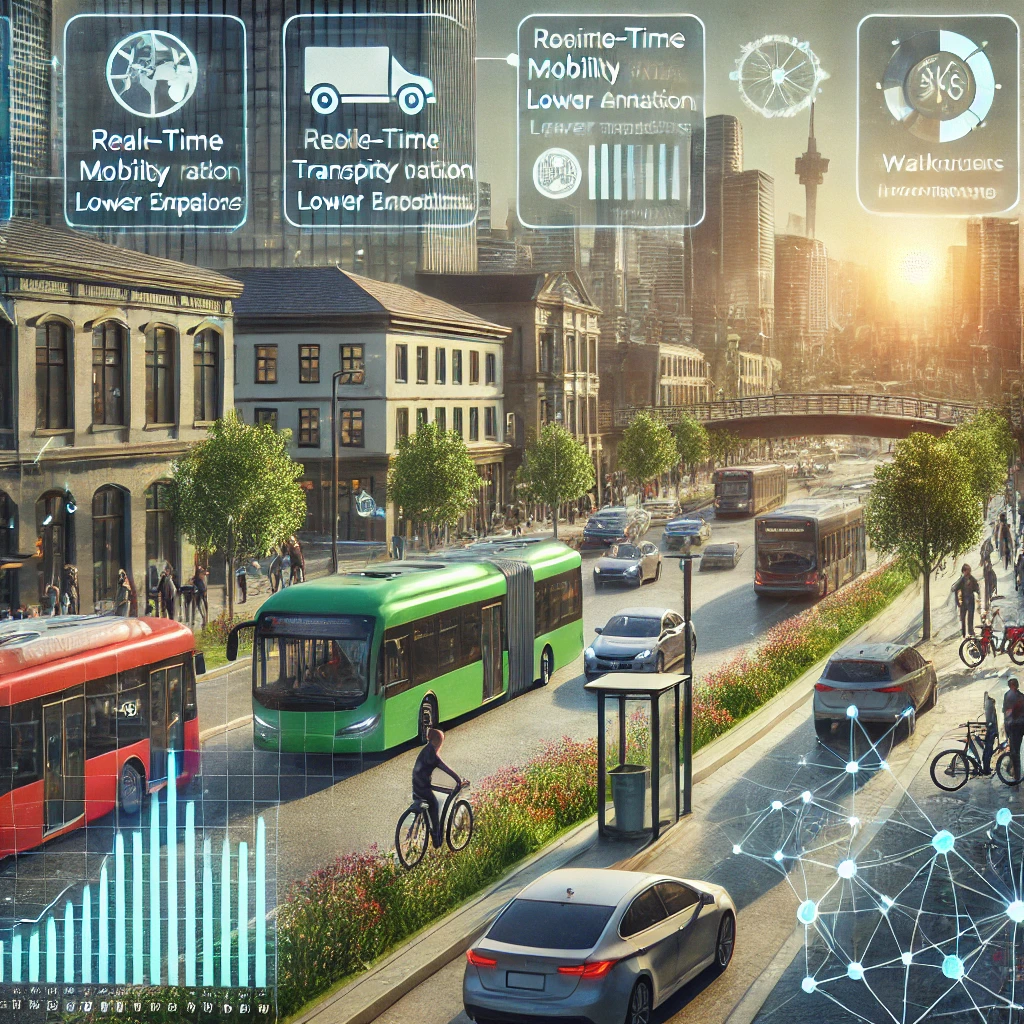
Community Engagement and Behavioral Change
- Application: Machine learning algorithms are analyzing data from surveys, social media, and community feedback platforms to understand resident concerns, preferences, and barriers to behavior change. Prescriptive analytics then turns this information into targeted recommendations for engagement programs, incentives, and campaigns that encourage sustainable choices.
- Impact: By using data-driven insights to inform engagement strategies, cities can foster stronger community buy-in and facilitate a shift towards more sustainable and active lifestyles.
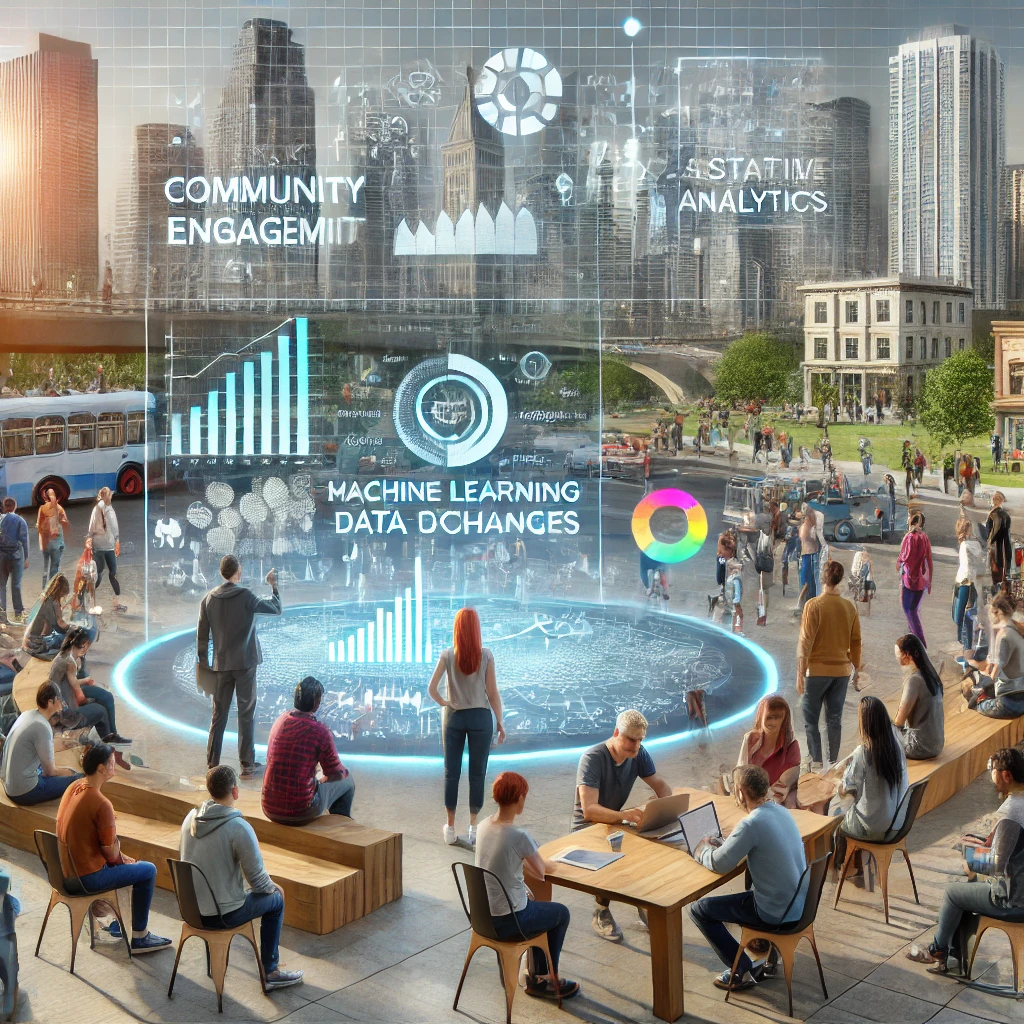
How Predictim Globe Supports the Development of 15-Minute Cities
Predictim Globe provides specialized expertise in tackling the complex challenges of creating sustainable, accessible urban environments within the 15-minute city model. Leveraging advanced prescriptive analytics and machine learning, we equip urban planners, policy-makers, and local authorities with data-driven insights and actionable recommendations tailored to urban infrastructure, mobility, environmental sustainability, and social equity. Our solutions focus on optimizing spatial design, predicting and adjusting traffic and pedestrian flows, and enhancing accessibility across diverse neighborhoods. By partnering with cities and organizations, Predictim Globe develops targeted strategies that address emerging urban issues—ranging from transportation and land use to green space allocation and equitable access—ensuring that city planning decisions are grounded in robust, scalable, and adaptive models.

